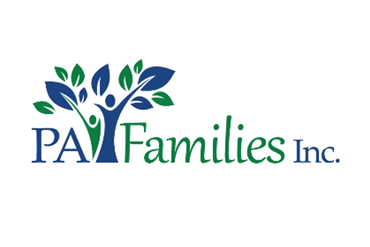FETAL ALCOHOL SPECTRUM DISORDER AND SYSTEMS OF CARE: INTERVENTION AT A HIGHER LEVEL
FETAL ALCOHOL SPECTRUM DISORDER AND SYSTEMS OF CARE: INTERVENTION AT A HIGHER LEVEL
Authored by: Gordon R. Hodas MD
Effective intervention for Fetal Alcohol Spectrum Disorders (FASD) is inextricably tied to systems of care (SOC), both the use of a SOC orientation and SOC implementation. Below, a synopsis of FASD is offered, followed by a discussion of the SOC approach and its relevance to FASD intervention.
Fetal Alcohol Spectrum Disorder (FASD)
FASD (fetal alcohol spectrum disorder) is an umbrella term for preventable neurodevelopmental disorders that result from in-utero exposure of a fetus to alcohol during any part of the pregnancy. Given that alcohol is toxic to a developing fetus, alcohol exposure can lead to irreversible, brain-based consequences and physical health problems. Thus, it is urgent that women of child-bearing years refrain from any alcohol use while pregnant. In addition, early FASD identification and intervention can lead to helpful interventions that improve an affected child’s functioning and overall prognosis.
Many children with an FASD do not have identifying physical characteristics that facilitate early identification and treatment. For this reason, FASD is often referred to as an “invisible disability.” In reality, children with an FASD, most with normal intellectual ability, have many emotional, behavioral, and cognitive challenges. These challenges can lead to academic failure and to difficulty with relationships, community functioning, understanding and processing of information, and learning from experience. Common outcomes for children when FASD is not identified and addressed include interrupted education, use of intensive mental health services, legal problems, extreme frustration, and inappropriate blaming of the child and/or family. FASD should be recognized as both a highly challenging clinical disorder and a significant public health challenge in society.
A System of Care Orientation
The SOC orientation recognizes that most challenging clinical problems are multi-faceted, involving the child, family, and community. These problems involve multiple child-serving and other social systems. Therefore, there is a need for a common understanding and a cohesive effort. The effort needs to be collaborative and strengths-based, avoiding blame. Children and families need to be encouraged to participate actively, and their “lived experience” should be recognized as a valuable source of expertise. A collaborative approach is ultimately team-driven, meaning that the involved stakeholders – professionals, family, and others – need to create and maintain a cohesive, persistent team. A team-driven approach is also youth-driven and family-driven and incorporates the use of natural supports in the community.
System of Care Implementation
Implementation of a SOC orientation involves the creation of an infrastructure, through the structure, policy, funding, clinical expertise, and a commitment to quality, at multiple levels, enabling the complex needs of children and families to be constructively addressed. Also important are efforts to increase family capacity for self-management, while still maintaining needed services and supports. In Pennsylvania, the SOC approach through the federally funded System of Care Partnership, involves a partnership between the state, the county, managed care, and various providers, along with children, families, and communities. In this way, the needs of individual children and families, as well as the larger community, can be effectively addressed.
The Necessary Interface of FASD and SOC
Families with a child with an FASD face many challenges, and many systems are potentially involved. These systems include education and special education, mental health, physical health, the community, and at times child welfare, juvenile justice, and drug and alcohol. Involved professionals may include teachers, psychologists, child psychiatrists, pediatricians, caseworkers, specialists, and others. Given these multiple levels of complexity, along with the inherent complexity of FASD itself, intervention efforts may be greatly compromised when they are disjointed and fragmented.
In contrast, the prognosis for a child with an FASD is greatly enhanced when there is a cohesive team guided by systems of care. Such a values-based approach is holistic, attentive to social context, and trauma-informed. The latter prioritizes safety and welcoming, supportive interactions. Whenever possible, the use of High Fidelity Wraparound as a planning process helps the team maintain a unified focus and break down change into manageable tasks. If a parent is also found to have an FASD, appropriate accommodations can help increase the functioning of both parent and child.
It can be said that the greater the challenge facing a child and family, the greater the need for a systems approach. The same applies to resources – the more limited the resources, the greater the need for systems of care. FASD involves significant challenges to families, and limited resources are all-too-common. Intervention needs to be at a higher level. The use of a SOC approach can help families with FASD face the challenges, maximize their efforts, and persevere.
Gordon R. Hodas, M.D. is a child psychiatrist consultant for the Pennsylvania Office of Mental Health and Substance Abuse Services
PA CRISIS TEXT LINE







